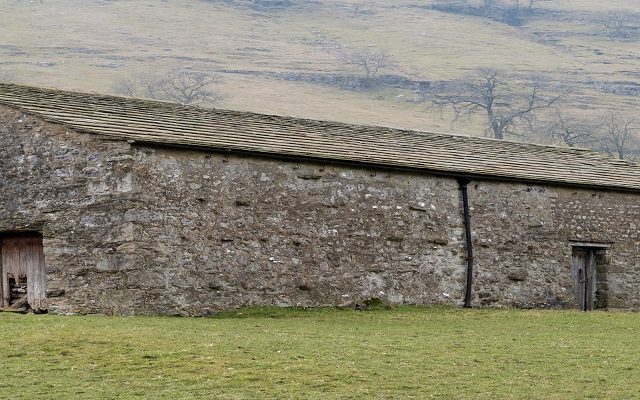CLA Rural Business Conference 2018 – Inspiring Investors
Strutt & Parker was delighted to once again sponsor the CLA’s Rural Business Conference which this year focused on how rural landowners are investing to shape places and create new opportunities in the rural economy.
Some key themes came out of the conference, titled Inspiring Investors, many of which reinforced the thoughts and ideas that emerged during Masterclass sessions held earlier this year, supported by Strutt & Parker. The themes are as follows:
The importance of rural estates as place shapers
Rural landowners can play a unique role in the countryside as they have the ability to transform how their local communities live, work and feel. Many already look after the infrastructure that creates vibrant communities, such as village halls, shops, pubs and open spaces. But through creative thinking and investment, there is an opportunity to take this to the next level, developing new business ventures, services, housing, tourism enterprises, recreational spaces and cultural assets which collectively help to create sustainable, liveable places, with a distinct identity that people want to be a part of.
The future of the rural estate is a topic that Strutt & Parker has been looking at for some time, conscious that landowners are looking for answers on how to react and adapt to the changes that they are facing as a result of Brexit and the Agriculture Bill. Getting the right mix of economic, social and environmental activity is the challenge, requiring landowners to look at their estates in a holistic way. We are working with landowners who have already successfully embarked on this journey investing in visitor attractions, workspaces, housing and infrastructure to create places and spaces that people want to be part of.
Key lessons shared by the speakers:
- Understanding your area and what it demands is critical – place shaping needs to be based on identifying local priorities
- Digital infrastructure is essential to driving rural areas forward – tenants no longer ask about the number of bathrooms, they ask about broadband speeds
- Villages need life during the day if they are to thrive, so commercial activity is vital
- Commercial facilities need to match or exceed what is available in urban centres – only when this is the case will the rural setting set them apart
- Not all services and facilities will be revenue generators, some supporting assets may be necessary to make a village ‘work’
- Don’t be put off by the challenges of the planning system – it can help to give a sense of direction
- Greater use of Class Q and P permitted development could help to solve the rural housing problem
- Detail is important to ensure the quality of the experience to visitors and residents
- A challenge for estates is how to remain as an enabler for the development of local communities – there’s a need to balance estate input with input from the community itself
To find out more, read our Place shaping – creating liveable places briefing paper.
The role of diversification in driving growth
Generating new sources of income will become essential for many businesses as direct payments are reduced to zero over the next decade. While public money for public goods may go some way to making up for the loss of Basic Payments, landowners are going to need income coming from multiple sources.
Society is changing and this is opening up exciting opportunities for new ventures in rural areas. For example, young families are increasingly looking for ways to entertain their families and there’s growing appetite for shared workspaces, serviced offices and live/work properties.
Launching a new business takes commitment, focus and inevitably involves risk. There are also tax and business structure implications that need to be thought through. But bold thinking, including looking at assets in a completely new way, is helping people to secure the future of their businesses for future generations.
Key lessons shared:
- Diversification can be an excellent way to make the most of the entrepreneurial skills and assets within a business and can help in the development of multi-generational businesses
- Managed carefully, it can help to spread risk, manage volatility, reduce the dependence on the existing business and improve cashflow
- Rural areas are increasingly being seen as the new seaside – great places to visit – opening up growth opportunities
- If the experience is good enough then people will visit an attraction, even if it is in a remote location
- Do your research. Look at what others are already doing. Will there be demand for your offerings at a price at which you can make a profit? Have you the right skills and infrastructure to make it work?
- Brands can be built through use of social media and word-of-mouth
- Do what is easy first and build your confidence. Get to know your market before you expand a business
- Timing can often be the key to success
To find out more, read our Diversification demystified briefing paper.
The value in addressing the question of growth and succession
Some of the most successful businesses have involved the next generation at an early stage. Yet a quarter of family businesses have identified challenges with the next generation as the most difficult they have to confront. These include identifying successors, attracting them into a business and then creating the right structures for them and the business to thrive.
The most critical factor for facilitating a smooth succession is clear, honest and regular communication – which needs to be two-way. The current generation of leaders need to state clearly what they want from succession and over what period they want it to happen. But discussions also need to take place with the next generation to see how they see themselves working in the business and how they see their role in the business evolving.
A growing business also presents a number of challenges. A business lives and dies by the skills of the people it employs, so employers need to think about how to create the right environment for people to flourish.
Key lessons shared by the speakers:
- People can make the biggest difference to the performance of a business so you need to create an environment which motivates them to perform well
- Consider if the next generation have the skills and experience they need – if not, what can be done to help them realise their potential?
- Defining success can be a really important part of establishing the right strategy
To find out more, read our Strategies for family-run farms and estates briefing paper.






